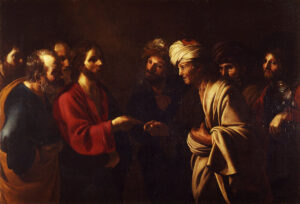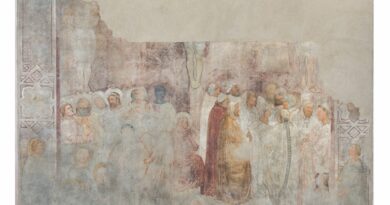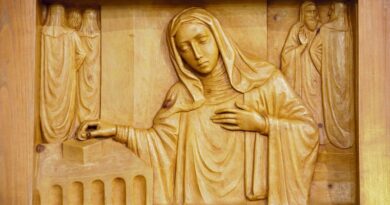Twnty-nineth Sunday of Ordinary Time/A
Massimo Palombella

In today’s Gospel (Mt 22:15-21) Jesus makes the famous statement “render unto Caesar the things that are Caesar’s and unto God the things that are God’s”. Beyond any social interpretation about the relationship between state and religion, I believe that this simple statement challenges us about the reality of the God in whom we say we believe. In fact, faith, the reference to God, necessarily implies, like two sides of the same coin, attention to our humanity. If the God in whom we say we believe does not lead us to mature, to face our problems, to be with our weaknesses and accept them, to tell ourselves the truth by stopping living a lie… Perhaps this God does not exist, he is just an invention of ours to live a trouble-free existence where everything is apparently ‘alright’.
In essence, if my faith does not lead me to be a better professional, who studies, keeps up to date, questions the securities I have achieved, is not content and aims at serious and sought-after quality… Perhaps this kind of ‘faith’ only serves to keep me in a kind of ‘bubble’ that defends me and distances me from reality and illudes me to live, while, if I am honest, it barely allows me to survive.
If the God in whom I believe is true, is real, then he necessarily changes, moves my life, leading me on – not without difficulty, effort and even suffering – to ‘life in abundance’, to becoming the person I can and should be.
We can all be tempted, in so many moments of life, to remove one side of the coin. Do we consign ourselves to a God who does not exist? Do we illude ourselves that our work, our professionalism, the things we realize, the professional successes we collect… all this is absolutely exhaustive of life, making us really happy? Do we truly believe that there is really no need for anything else?
The Communion antiphon of today’s Celebration is taken from Psalm 8 (Ps 8:2ab) with the following text:
“Dómine, Dóminus noster, quam admirábile est nomen tuum in univérsa terra!”
(O Lord our governor, how admirable is your name in all the earth!).
The attached music, in Gregorian Chant, is taken from the Graduale Triplex published in Solesmes in 1979. The interpretation is by the Schola des moines de l’Abbaye Saint-Martin de Lig.
A blessed Sunday and heartfelt greetings.


